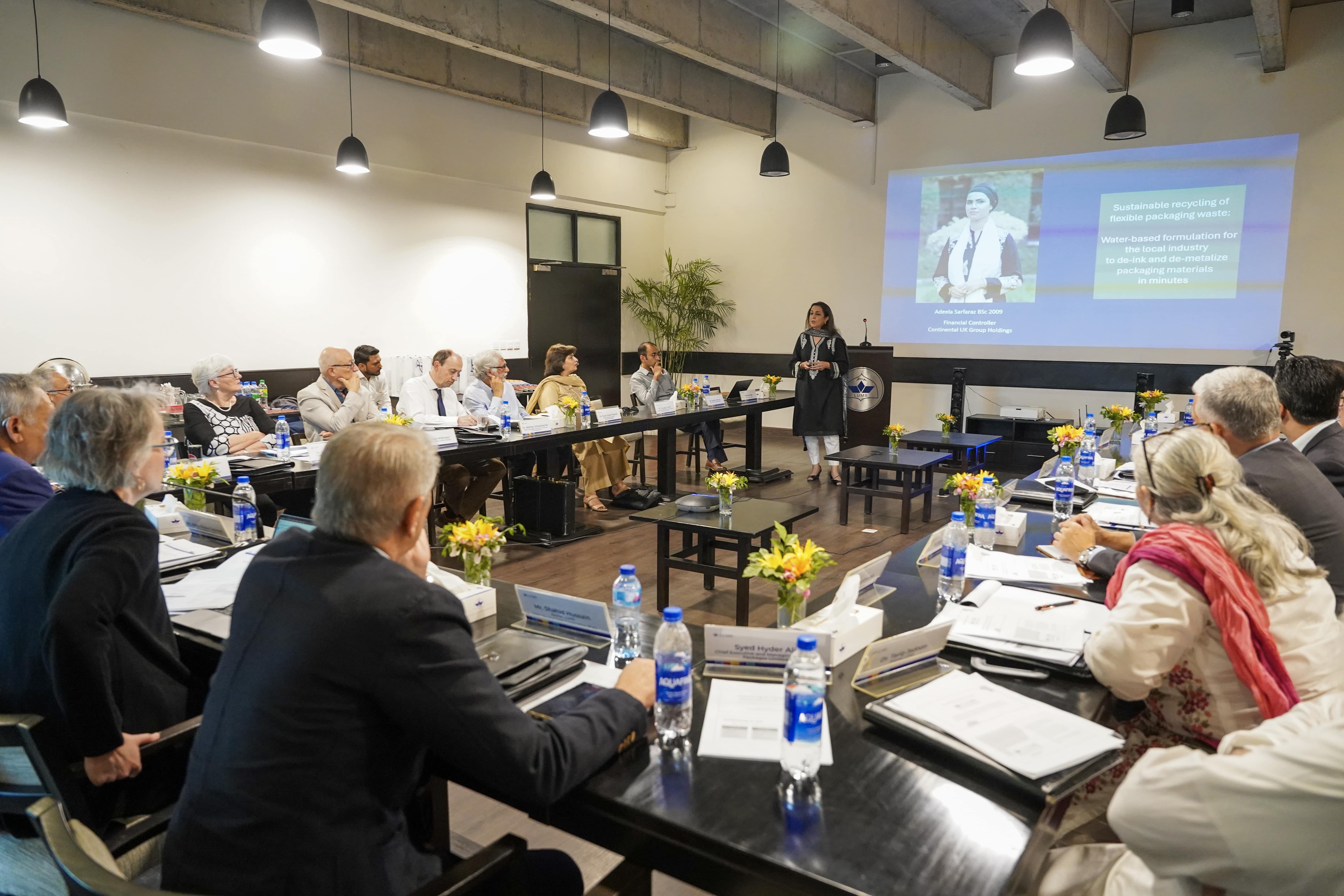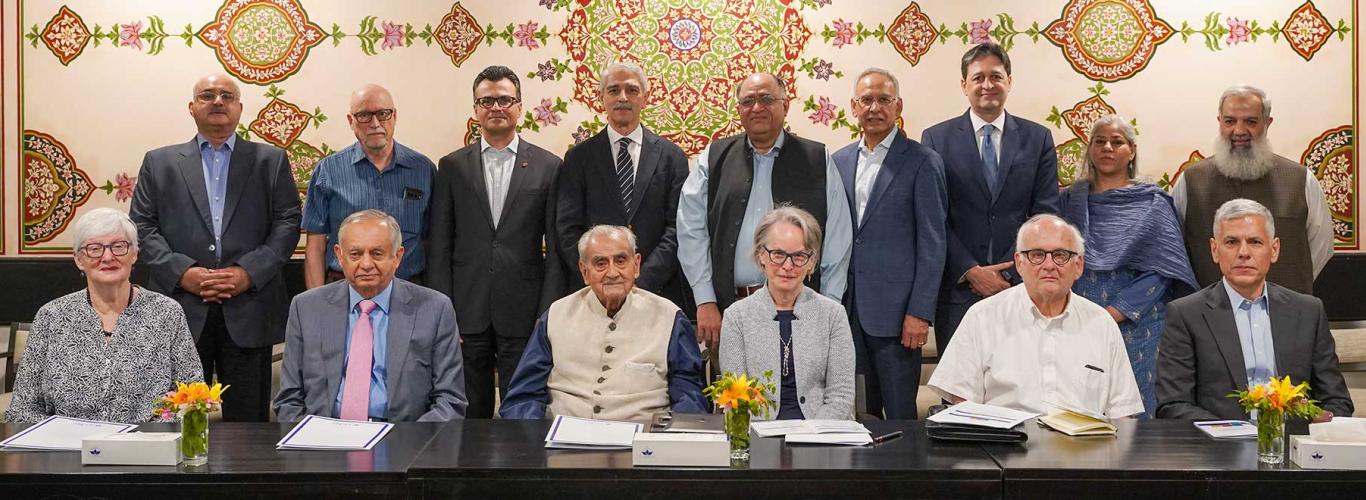LUMS University Advisory Board Meets for the Sixth Session to Discuss the Way Forward
The LUMS University Advisory Board (UAB), the key body that helps shape the overall direction of the university, met on May 14, 2024, marking its sixth session. The four-day event brought together a group of renowned academics and experts from universities across the world. Joining the UAB were members of the LUMS Management Committee including Syed Babar Ali, Founding Pro Chancellor; Mr. Abdul Razak Dawood, Pro Chancellor; Mr. Shahid Hussain, Rector; Dr. Ali Cheema, Vice Chancellor, and Dr. Tariq Jadoon, Provost. With the agenda to provide guidance and support to LUMS regarding its academic and administrative matters, the UAB members held in-depth discussions with the university's leadership, and senior faculty and staff members.
Syed Babar Ali extended his warm welcome to the UAB members and acknowledged their role in providing guidance to the University. “I can tell you that what little LUMS has achieved; this Advisory Board has made a big contribution to keep the spirit alive in this organisation. I hope that the deliberations will be very productive, and we can look to the future with confidence so LUMS can move on to grow the future of coming generations at LUMS.”
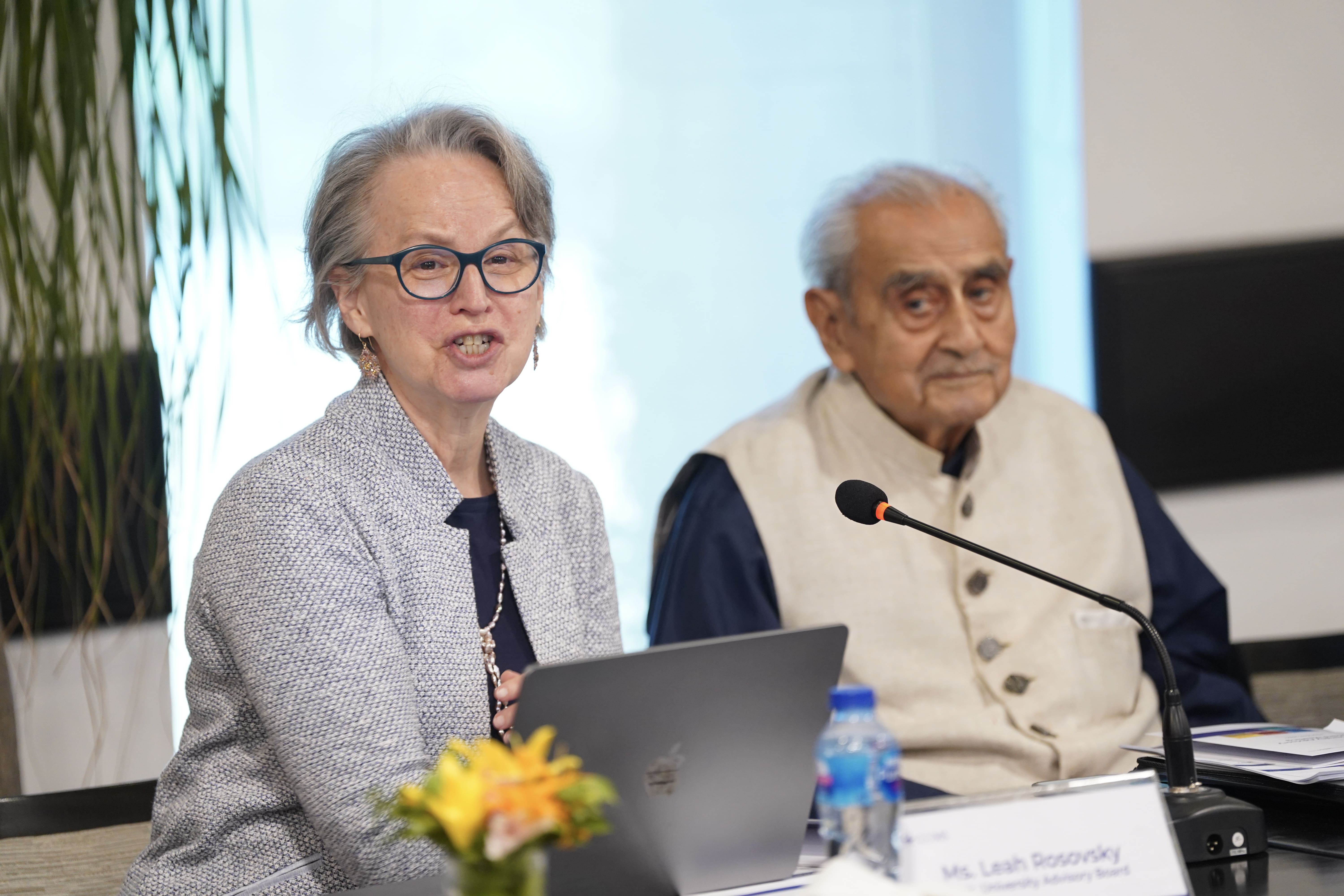 At the initial session, Ms. Leah Rosovsky, Chair, University Advisory Board, LUMS and Stanford Calderwood Director, Boston Athenaeum, USA, set the tone for the discussions, “We are very excited for the opportunity to work with Dr. Cheema, and about the direction that the institution is taking. Those of us on the UAB are very proud to be supporting LUMS and this very important mission. We’ve all fallen in love with LUMS! This is more than intellectual labour for us.”
At the initial session, Ms. Leah Rosovsky, Chair, University Advisory Board, LUMS and Stanford Calderwood Director, Boston Athenaeum, USA, set the tone for the discussions, “We are very excited for the opportunity to work with Dr. Cheema, and about the direction that the institution is taking. Those of us on the UAB are very proud to be supporting LUMS and this very important mission. We’ve all fallen in love with LUMS! This is more than intellectual labour for us.”
In his welcome note, Dr. Ali Cheema thanked the guests and commented, “These are challenging times for the country, and challenging times for a university in Pakistan in the context of global challenges to higher education."
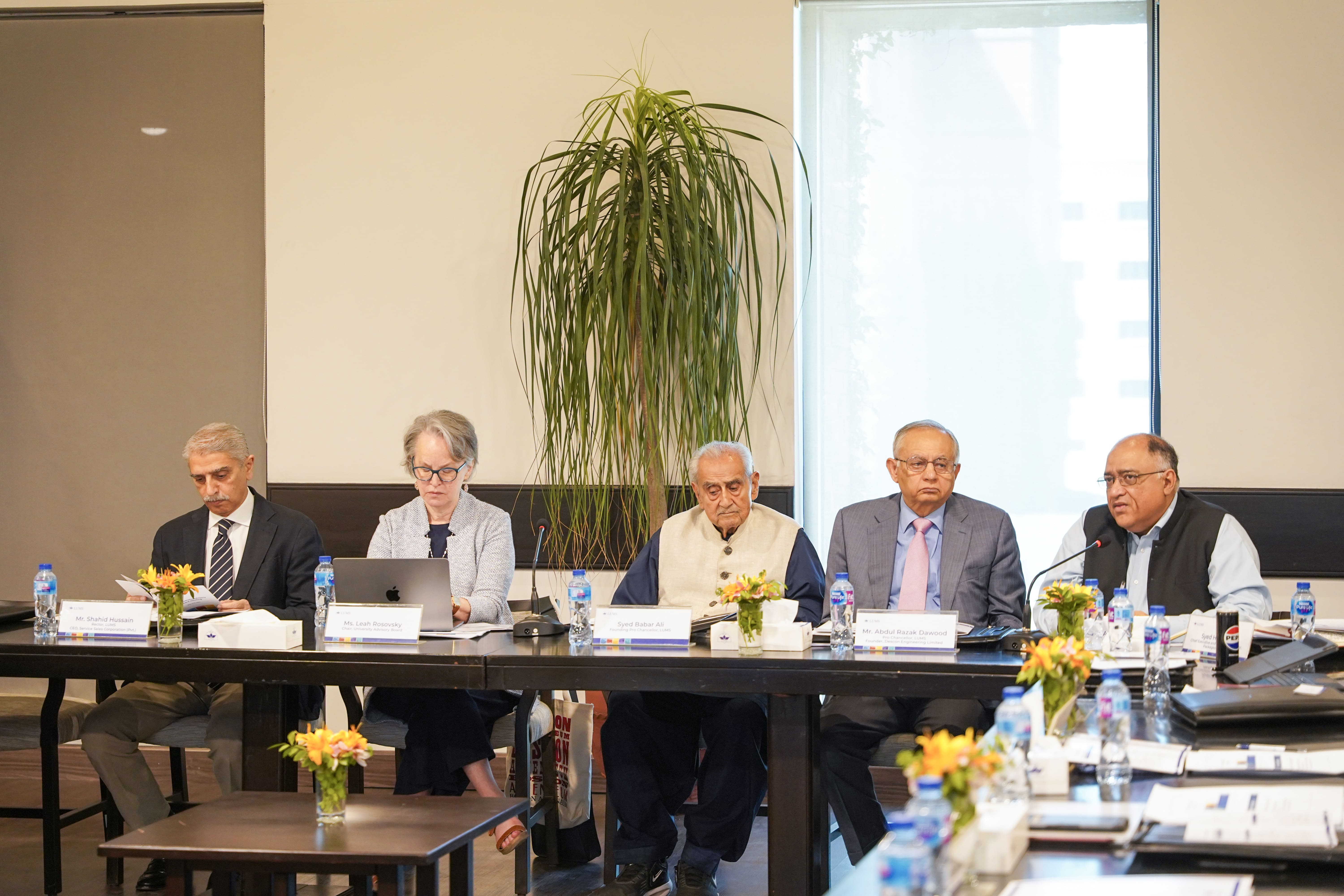 In one of the sessions, ‘Breaking the Glass Ceiling in Terms of Faculty Hiring’ by Dr. Farah Nadeem, Director, Office of Accessibility and Inclusion; Dr. Mariam Mustafa, Director, Saida Waheed Gender Initiative and Assistant Professor, Computer Science and Dr. Hadia Majid, Chair, Economics Department presented their observations, addressing gender disparities. The session highlighted issues faced by female faculty and leadership within Pakistan's higher education sector.
In one of the sessions, ‘Breaking the Glass Ceiling in Terms of Faculty Hiring’ by Dr. Farah Nadeem, Director, Office of Accessibility and Inclusion; Dr. Mariam Mustafa, Director, Saida Waheed Gender Initiative and Assistant Professor, Computer Science and Dr. Hadia Majid, Chair, Economics Department presented their observations, addressing gender disparities. The session highlighted issues faced by female faculty and leadership within Pakistan's higher education sector.
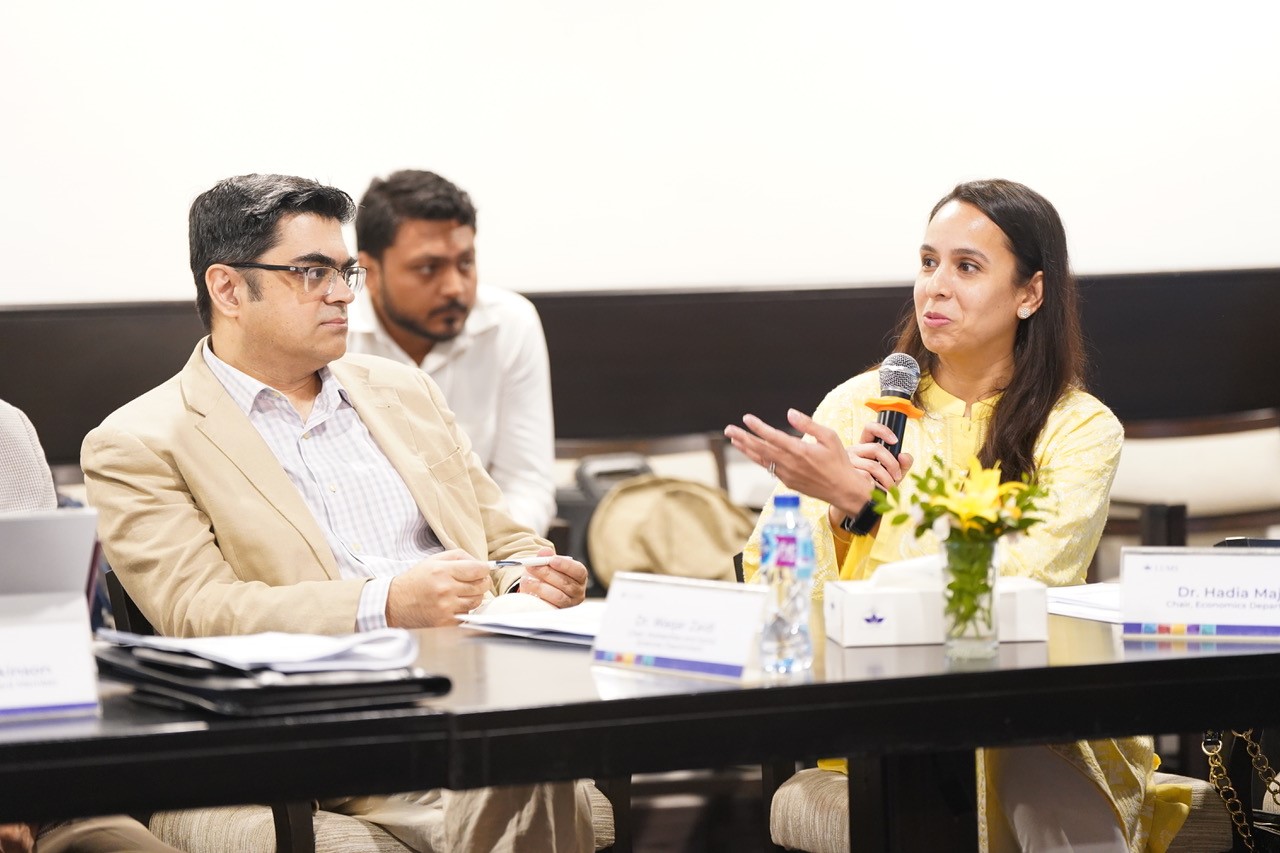
Dr. Ali Khan, Bilquis Dawood Chair and Dean, Mushtaq Ahmad Gurmani School of Humanities and Social Sciences, led a session on the School’s progression and how it has revolutionised the teaching of humanities and social sciences. He highlighted the School’s national and international accolades as well as the contributions of its students, alumni and faculty in bringing about positive change in Pakistani society and beyond.
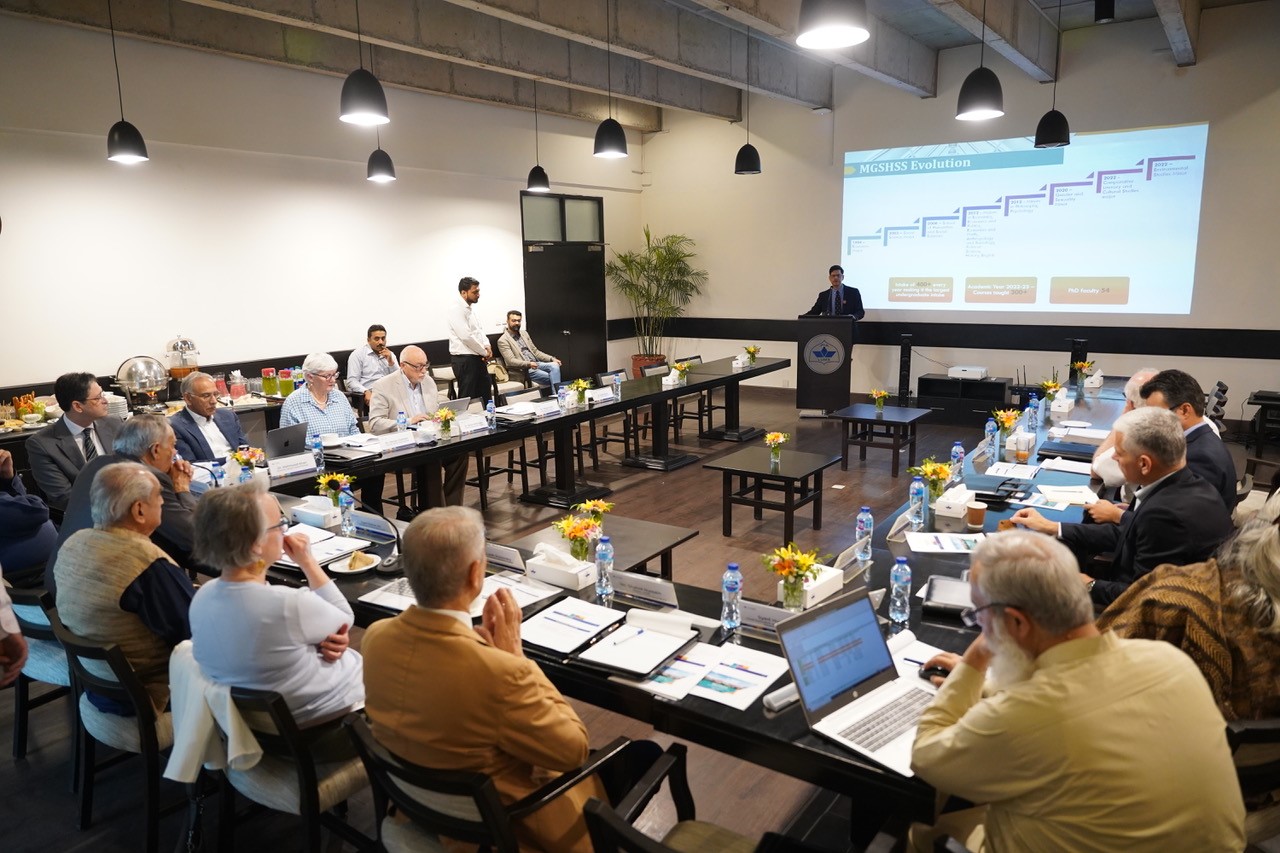
The session titled, ‘Student Learning Challenges: Reforming the Undergraduate Core Curriculum’ was highly interactive. Dr. Tania Saeed, Associate Professor, Sociology and Dr. Nauman Faizi, Associate Professor, Religion and Co-convenor and Member, Core Curriculum Reform Taskforce, respectively, presented the idea of revamping the undergraduate core curriculum.
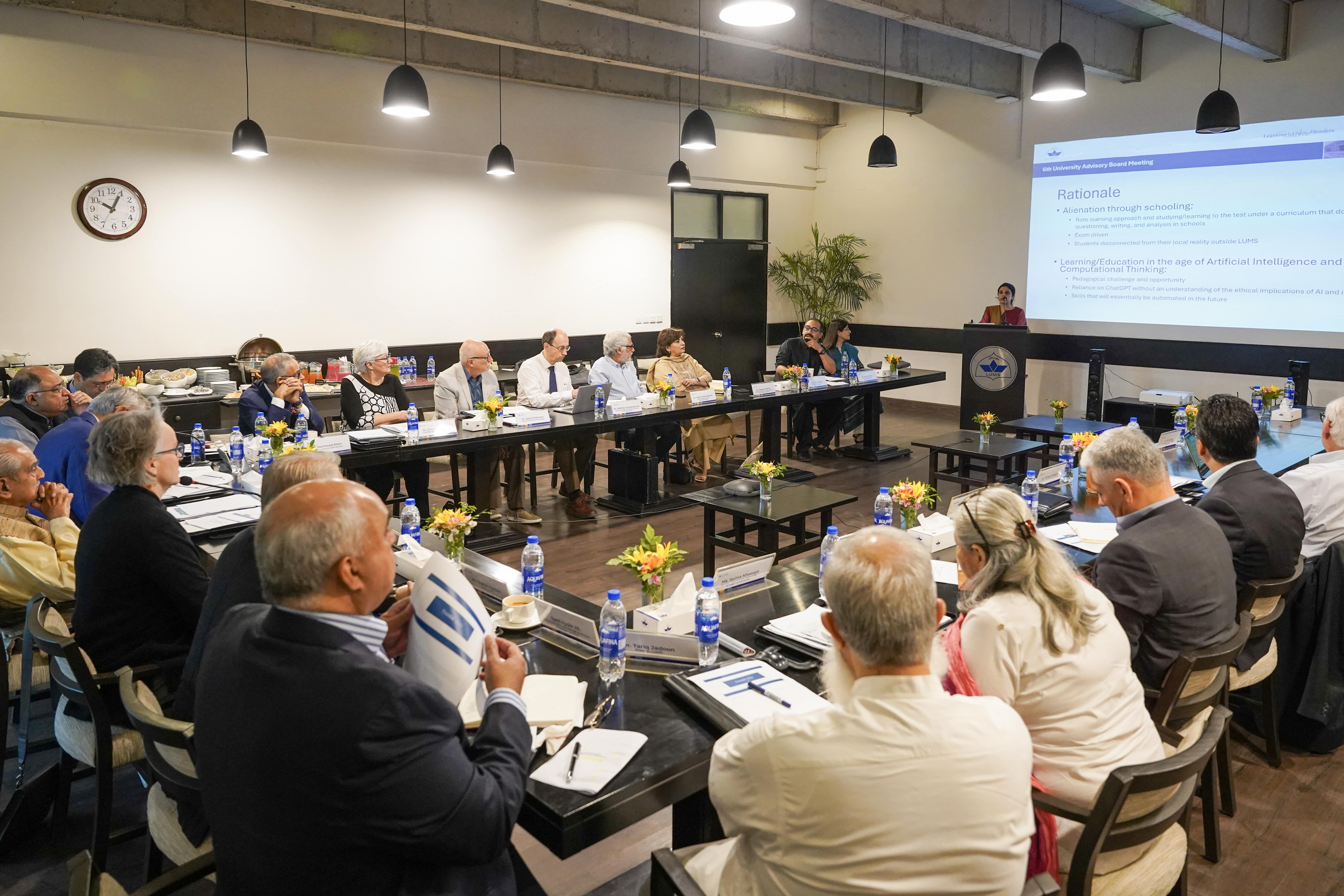
In a later session, led by Dr. Fazal Jawad Seyyed, Dean, Suleman Dawood School of Business (SDSB), provided a comprehensive reflection on the School’s journey thus far. From its inception to its current standing, the discussion delved into the evolution of SDSB, highlighting its diverse programmes and notable accomplishments. Dr. Cheema emphasised LUMS’ pioneering role in generating internal case studies and reaffirmed its status as a premier institution in the realm of business education. While celebrating the past achievements of the School, key areas for further growth and improvement were also identified.
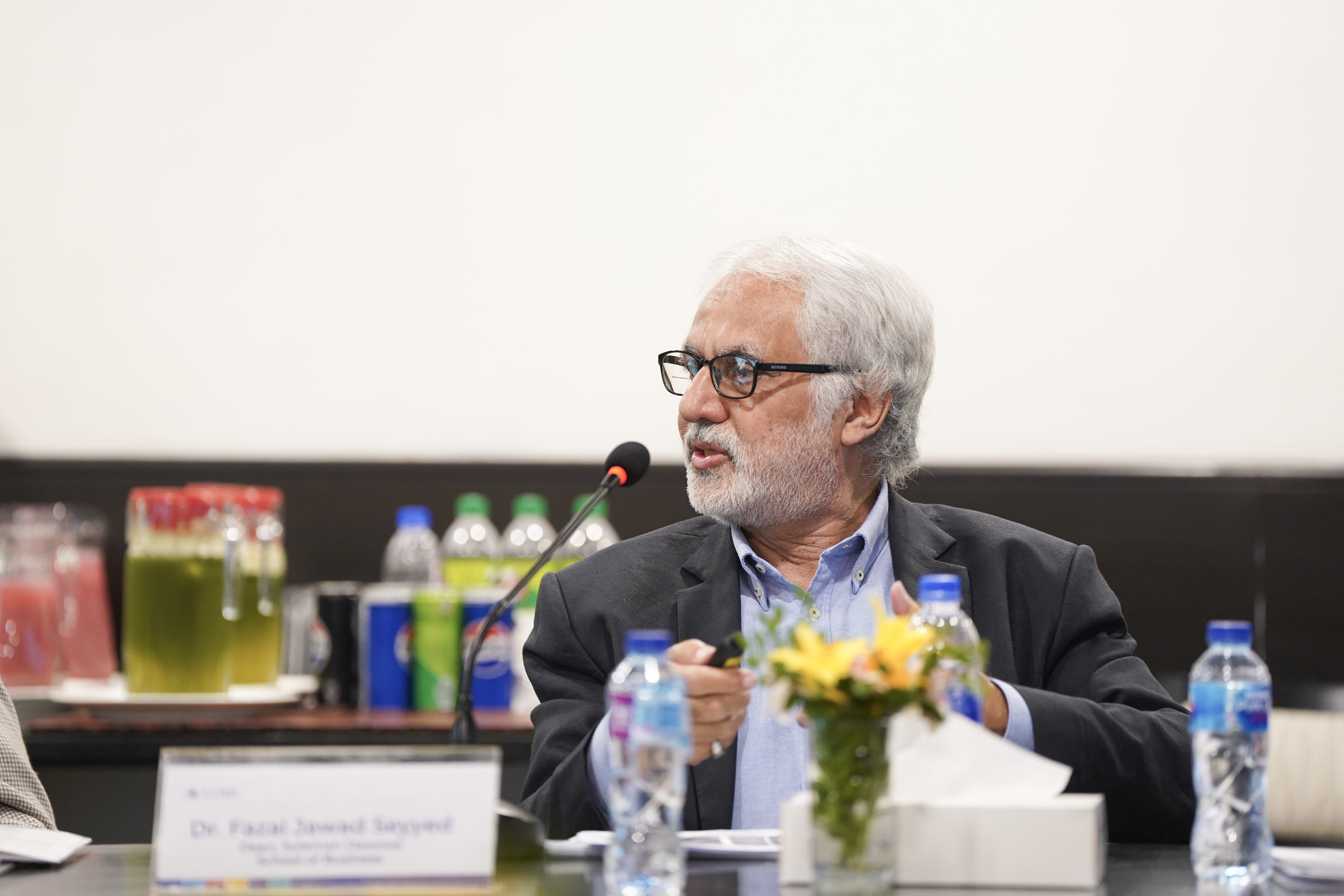
At a session on LUMS’ advancement, Mr. Osman Khalid Waheed, Chair of the Advancement Committee LUMS Board, and Ms. Nuzhat Kamran, Director of Advancement, delved into the University's development, alumni relations, marketing, and communication work over the past year and discussed achievements, the operational strategy, and funding needs.
